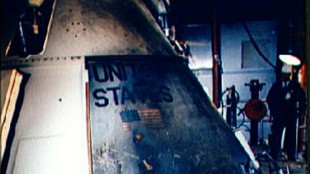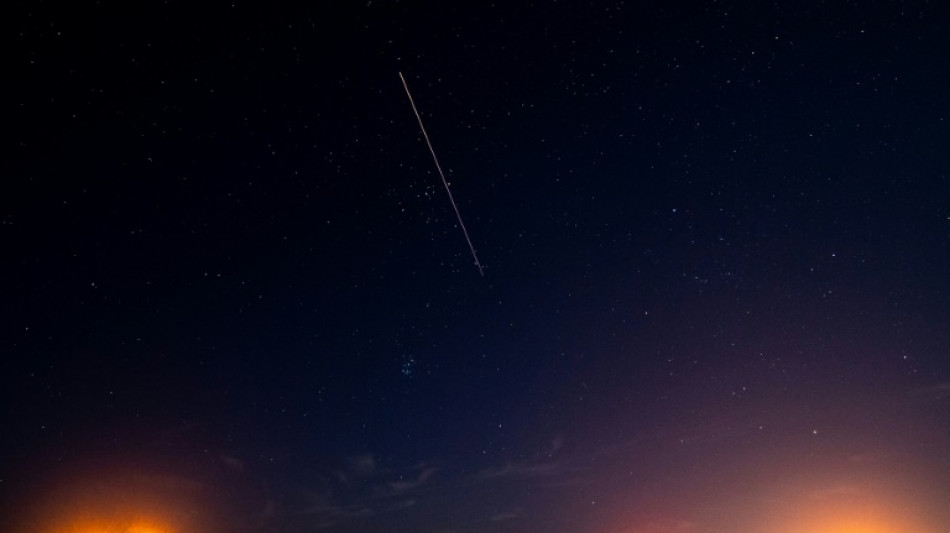
-
 AI-created Iran protest videos gain traction
AI-created Iran protest videos gain traction
-
Five things to know about Uganda

-
 Uganda votes under internet blackout and police crackdown
Uganda votes under internet blackout and police crackdown
-
Dreams on hold for Rohingya children in Bangladesh camps

-
 Canada's Carney in Beijing for trade talks with Chinese leaders
Canada's Carney in Beijing for trade talks with Chinese leaders
-
All Blacks fire coach Robertson less than two years before World Cup

-
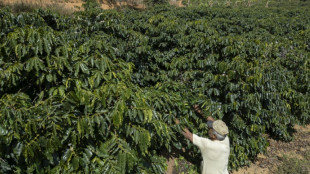 Long-awaited EU-Mercosur trade pact set for signing
Long-awaited EU-Mercosur trade pact set for signing
-
Trump embraces AI deepfakes in political messaging

-
 A year of Trump: US health policy reshaped in RFK Jr's image
A year of Trump: US health policy reshaped in RFK Jr's image
-
One year in, Trump shattering global order

-
 Hit TV show 'Heated Rivalry' a welcome surprise for gay hockey community
Hit TV show 'Heated Rivalry' a welcome surprise for gay hockey community
-
Spanish singer Julio Iglesias prepares defence against abuse allegations: Hola! magazine

-
 Actor McConaughey seeks to patent image to protect from AI
Actor McConaughey seeks to patent image to protect from AI
-
Musk's Grok barred from undressing images after global backlash

-
 Hosts Morocco set up Senegal AFCON final showdown
Hosts Morocco set up Senegal AFCON final showdown
-
Trump says Iran killings stopped, Tehran says 'no plan for hanging'

-
 Chelsea paid for costly errors in Arsenal defeat, says Rosenior
Chelsea paid for costly errors in Arsenal defeat, says Rosenior
-
Morocco beat Nigeria on penalties to reach Africa Cup of Nations final

-
 Golden Globes viewership shrinks again
Golden Globes viewership shrinks again
-
Astronauts leave ISS in first-ever medical evacuation
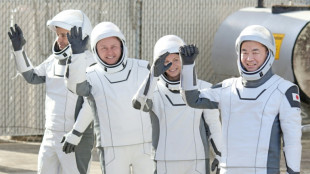
-
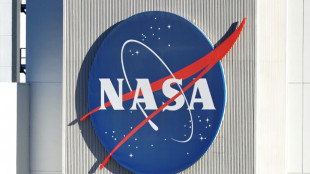 NASA reports record heat but omits reference to climate change
NASA reports record heat but omits reference to climate change
-
Trump praises 'terrific' new Venezuela leader after call

-
 Real Madrid crash out of Copa del Rey at Albacete on Arbeloa debut
Real Madrid crash out of Copa del Rey at Albacete on Arbeloa debut
-
Trump says Iran killings stopped as US scales back Qatar base

-
 Arsenal beat Rosenior's Chelsea in League Cup semi first leg
Arsenal beat Rosenior's Chelsea in League Cup semi first leg
-
US stocks fall again as Iran worries lift oil prices

-
 Inter extend Serie A lead to six points after Napoli slip
Inter extend Serie A lead to six points after Napoli slip
-
Bayern beat Cologne to move 11 points clear in Bundesliga

-
 Mane takes Senegal past Egypt into final of his last AFCON
Mane takes Senegal past Egypt into final of his last AFCON
-
Trump says Greenland will 'work out' after Denmark fails to bridge gap

-
 'Bridgerton' premieres in Paris promising 'Cinderella with a twist'
'Bridgerton' premieres in Paris promising 'Cinderella with a twist'
-
California begins probe of Musk's Grok over sexualized AI images

-
 Astronauts set to leave ISS in first-ever medical evacuation
Astronauts set to leave ISS in first-ever medical evacuation
-
Napoli's stalemate with Parma opens door for Serie A leaders Inter

-
 Syrian leader urges Kurdish integration as army sends troops east of Aleppo
Syrian leader urges Kurdish integration as army sends troops east of Aleppo
-
Denmark says White House talks failed to alter US designs on Greenland

-
 Venezuela looking to 'new era' after Maduro ouster, says interim leader
Venezuela looking to 'new era' after Maduro ouster, says interim leader
-
Mane takes dominant Senegal past Egypt into AFCON final

-
 UK police admit 'mistakes' over Maccabi Tel Aviv fan ban
UK police admit 'mistakes' over Maccabi Tel Aviv fan ban
-
Promoter says Joshua will return to ring when 'time is right' after horror crash

-
 California investigating Grok AI over lewd fake images
California investigating Grok AI over lewd fake images
-
Wales's Faletau set to miss bulk of Six Nations

-
 Denmark, Greenland wrap up crunch White House talks
Denmark, Greenland wrap up crunch White House talks
-
England sweating on Fin Smith's fitness for Six Nations opener

-
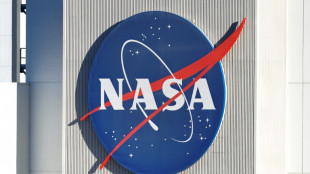 NASA acknowledges record heat but avoids referencing climate change
NASA acknowledges record heat but avoids referencing climate change
-
England rugby league coach Wane quits role

-
 Oil prices extend gains on Iran worries
Oil prices extend gains on Iran worries
-
European basketball pioneer Schrempf lauds 'global' NBA

-
 Denmark, Greenland in crunch White House talks as Trump ups pressure
Denmark, Greenland in crunch White House talks as Trump ups pressure
-
Mitchell hits ton as New Zealand down India to level ODI series


RNA base in asteroid samples suggests origins of life on Earth: study
The black particles from an asteroid some 300 million kilometres away look unremarkable, like pieces of charcoal, but they hold a component of life itself.
Scientists have discovered the chemical compound uracil, one of the building blocks of RNA, in just 10 milligrammes of material from the asteroid Ryugu, according to new research published on Tuesday.
The finding lends weight to a longstanding theory that life on Earth may have been seeded from outer space when asteroids crashed into our planet carrying fundamental elements.
It is some of the latest research from analysis of 5.4 grams of rocks and dust gathered by the Hayabusa-2 probe from the asteroid Ryugu.
Hayabusa-2 was launched in 2014 and returned to Earth's orbit in late 2020 with a capsule containing the sample from the asteroid.
The precious cargo was divided between international research teams and has already yielded several insights, including that some of life's building blocks, amino acids, may have been formed in space.
The first drop of water discovered in a near-Earth asteroid has also been found among the samples.
The new research, published Tuesday in the journal Nature Communications, went looking for another foundation of life: the nucleobases of RNA.
While DNA, the famed double helix, functions as a genetic blueprint, single-strand RNA is an all-important messenger, converting the instructions contained in DNA for implementation.
Like DNA, it is made up of bases: adenine, guanine, cytosine, and uracil.
Scientists have previously found some or all of these bases in different asteroids that landed on Earth as meteorites. However, they could not be sure the chemicals came from outer space or were contaminated when they landed.
"Since every meteorite has landed on the surface of the Earth where microorganisms are ubiquitously present everywhere, it always makes the interpretation on the origin of such biologically important molecules in meteorites more complex," said Yasuhiro Oba, associate professor at Hokkaido University and an author of the research.
- 'Like brewing coffee' -
Testing the Ryugu samples was a multi-phase process that began by putting them in hot water, like "brewing coffee or tea", Oba said.
Acid was then applied to extract molecules that were analysed by extremely sensitive tools capable of detecting the minute quantities of uracil present.
The discovery offers "strong evidence that one of the RNA components has been provided to the Earth even before the emergence of life", Oba told AFP.
"We expect it plays a role for prebiotic evolution and possibly the emergence of the first life," he said.
RNA's other bases were not found in the sample, though Oba believes they could be present at levels too low to be detected with the method used to find uracil.
He hopes to analyse new samples collected from space in coming years, including Osiris-REx's material from the asteroid Bennu, expected to arrive this year.
Yoshinori Takano, a scientist at the Japan Agency for Marine-Earth Science and Technology and author of the Ryugu research, said he was also keenly awaiting the Martian Moons eXploration project, set to launch from Japan next year and return around 2029.
It will collect samples from Phobos, one of the moons of Mars.
"I am sure it will be very hotly watched by organic cosmochemists for the next 10 years," said Takano.
M.AbuKhalil--SF-PST

